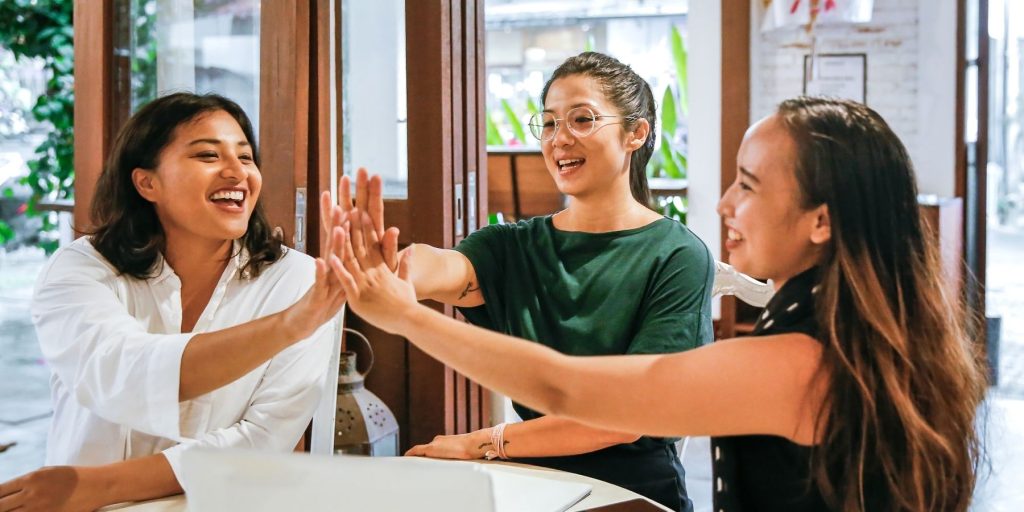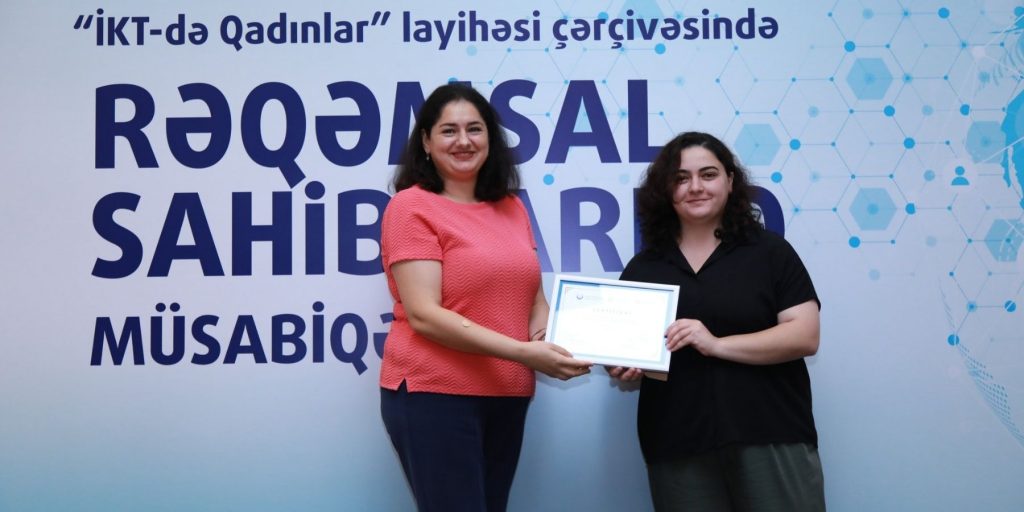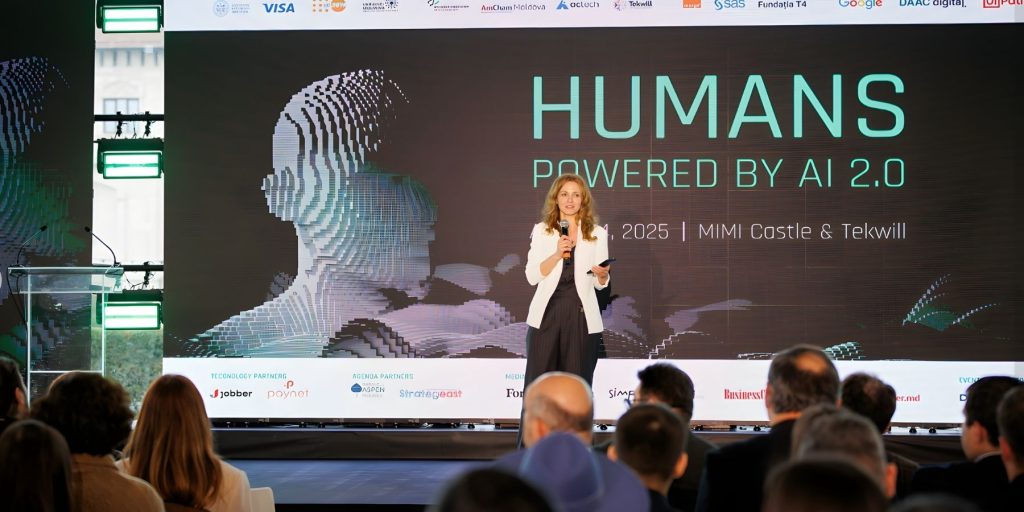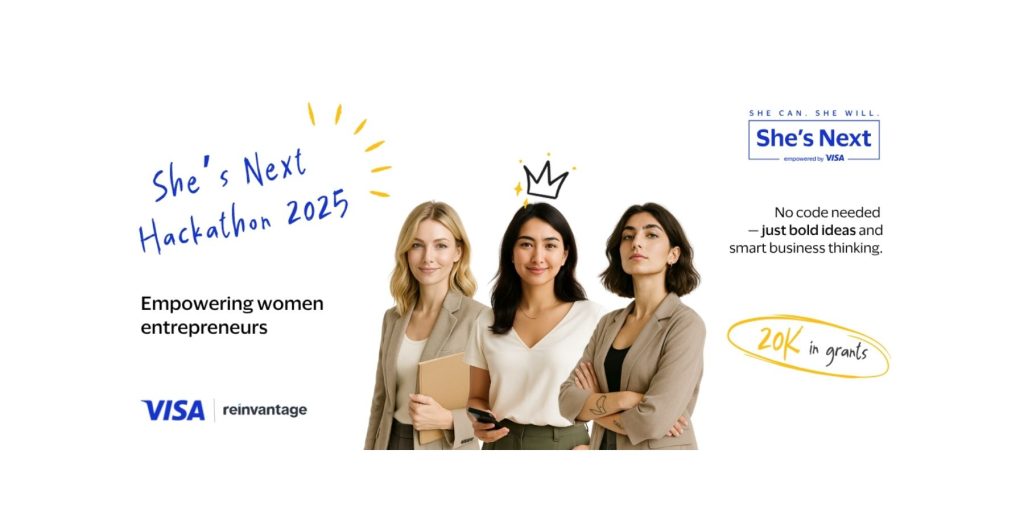
Women with a vision
A hackathon spanning 17 countries shows how digital platforms can unlock entrepreneurial potential
When 1,753 women across Eastern Europe and Central Asia registered for an online business competition earlier this year, they did more than sign up for a contest. They joined a digital experiment in democratising entrepreneurship—one that reveals how modern platforms can circumvent the traditional barriers that have long constrained women founders in emerging markets.
The She’s Next Hackathon 2025, organised by Visa and Reinvantage, demonstrates what happens when aspiration meets infrastructure. Participants proposed ventures ranging from AI-powered legal tools for people with disabilities to mental-health platforms for journalists. The scale and scope suggest that the constraint on women’s entrepreneurship in these regions has never been talent or ambition—merely access.
The geographical distribution reveals that the entrepreneurial impulse transcends borders and political circumstances. From Albania on the Adriatic Sea to double-landlocked Uzbekistan, participants came from all over a wide region, while even a handful from outside the target region found their way to the platform, drawn by word of mouth and digital discovery.
Education, education, education
What distinguished this initiative from typical entrepreneurship programmes was its emphasis on education over elimination. Four webinars attracted nearly 2,500 viewers—a combined audience exceeding the number of initial registrations, suggesting participants returned for multiple sessions or shared links with peers.
More than 80 mentorship sessions connected aspiring founders with 18 experienced advisers. This wasn’t a Darwinian competition to find the best; it was an ecosystem designed to improve everyone.
Digital marketing campaigns meanwhile generated 19 million impressions, a remarkable number given the target demographic: women in emerging markets contemplating self-employment, often whilst juggling existing responsibilities and navigating sceptical social environments.
Indeed, the impact data suggest the programme succeeded in its primary mission: not merely to crown winners but to catalyse change. Some 95 per cent of participants said they would apply acquired knowledge to future projects—a figure that might seem suspiciously high except that it aligns with the 88 per cent who reported improved entrepreneurial skills and the 94 per cent who felt more confident pursuing their ideas.
Confidence, after all, is the resource most scarce amongst would-be founders in environments where women’s business ownership remains low.
Practical skills, empathy, and recognition
Participant feedback supports the quantitative findings. One participant from Moldova, described the hackathon as, “an intensive and transformative experience. It sharpened my entrepreneurial mindset, helped me refine the concept of a scalable financial platform for women, and gave me practical tools to move from idea to implementation.”
Another participant, from Armenia, spoke of the hackathon as “an eye-opening experience” that “boosted both my confidence and practical skills as a founder.”
The three winning projects exemplify the range of problems women founders are tackling. Altogether, created by Bahar Nadir Ramazanova from Azerbaijan, uses artificial intelligence to make legal and business compliance tools accessible for people with disabilities—a market typically ignored by both governments and established firms. It claimed the 10,000 US dollars grand prize.
“The She’s Next Empowered 2025 Hackathon was both inspiring and transformative — it helped refine how we connect inclusion with innovation, bringing together incredible experts, mentors, and diverse founders to learn from,” said Ramazanova.
PressShield, led by Albania’s Inva Hasanaliaj, addresses journalist mental health and safety, issues that have intensified as media workers face increasing harassment. It won 5,000 US dollars for most innovative idea.
“The She’s Next Hackathon is more than a competition, it is a space where innovation met empathy,” said Hasanaliaj.
Unfold, Karine Hambaryan’s Armenian venture, builds community for women over 50 through a hybrid platform—acknowledging that digital exclusion and social isolation often compound with age. It received 5,000 US dollars for best social impact.
“The seminars and mentorship gave me the confidence to share this idea and believe in its impact,” said Hambaryan. “This recognition is a reminder that women are never alone and our connections make us stronger and more creative.”
Accessibility, protection, inclusion
These aren’t frivolous lifestyle businesses or derivative e-commerce plays. They target genuine market failures where incumbent institutions have underperformed: accessibility for the disabled, protection for journalists, inclusion for older women. That such projects emerged from a field of 94 submissions suggests the depth of unaddressed needs in these markets—and the capacity of women founders to identify them.
The hackathon model itself deserves praise. Unlike traditional accelerators that demand relocation or intensive in-person participation, this programme operated entirely online, accommodating participants’ existing commitments. Unlike pitch competitions that reward showmanship, it emphasised education and mentorship.
Unlike venture-capital tournaments that prioritise scalability über alles, it recognised social impact alongside commercial potential. The approach acknowledges that women entrepreneurs in emerging markets face different constraints than their Western counterparts—and require different support structures.
Natalia Voitovych, Visa’s senior director, noted the “bold, viable, and impactful solutions” presented by finalists and expressed confidence they would “continue to grow and make a difference in their communities.” That language—growing businesses that make a difference—captures the dual mandate many women founders embrace: commercial success intertwined with social purpose.
Whether markets will reward that combination remains an open question, though impact investing’s rise suggests patient capital increasingly exists for such ventures.
The virtual Grand Finale meanwhile trumped physical events that require travel and visa arrangements across 17 countries. The 16 institutional partners involved suggest the programme achieved legitimacy beyond its organisers.
The pipeline runs deep
What the She’s Next Hackathon ultimately demonstrates is that entrepreneurial infrastructure—not entrepreneurial spirit—remains the binding constraint for women founders in emerging markets. Given accessible education, responsive mentorship, and peer networks, women across vastly different contexts produced remarkably sophisticated business proposals.
The challenge isn’t discovering entrepreneurial women; they’re already there. It’s building the connective tissue—digital platforms, knowledge resources, capital networks—that allows them to act on their ambitions.
Whether the hackathon winners will go on to build sustainable businesses remains to be seen. Yet what’s already clear is their determination and the depth of potential they represent. Starting is only the first step, and while scaling brings new challenges, the foundation is strong. With 1,753 registrations from 17 countries, it’s evident that a vibrant generation of women founders is emerging—ready to turn vision into impact, provided their ecosystems continue to support and empower them.
New Free Courses — Made for Ambitious Women Entrepreneurs!
It’s time to grow smarter, adapt faster, and take your business global.
Explore two powerful courses available exclusively to She’s Next members:
The Reinvention Masterclass for Start-up Founders
Beyond Borders: Building for Global Success
Enroll today — it’s free!





